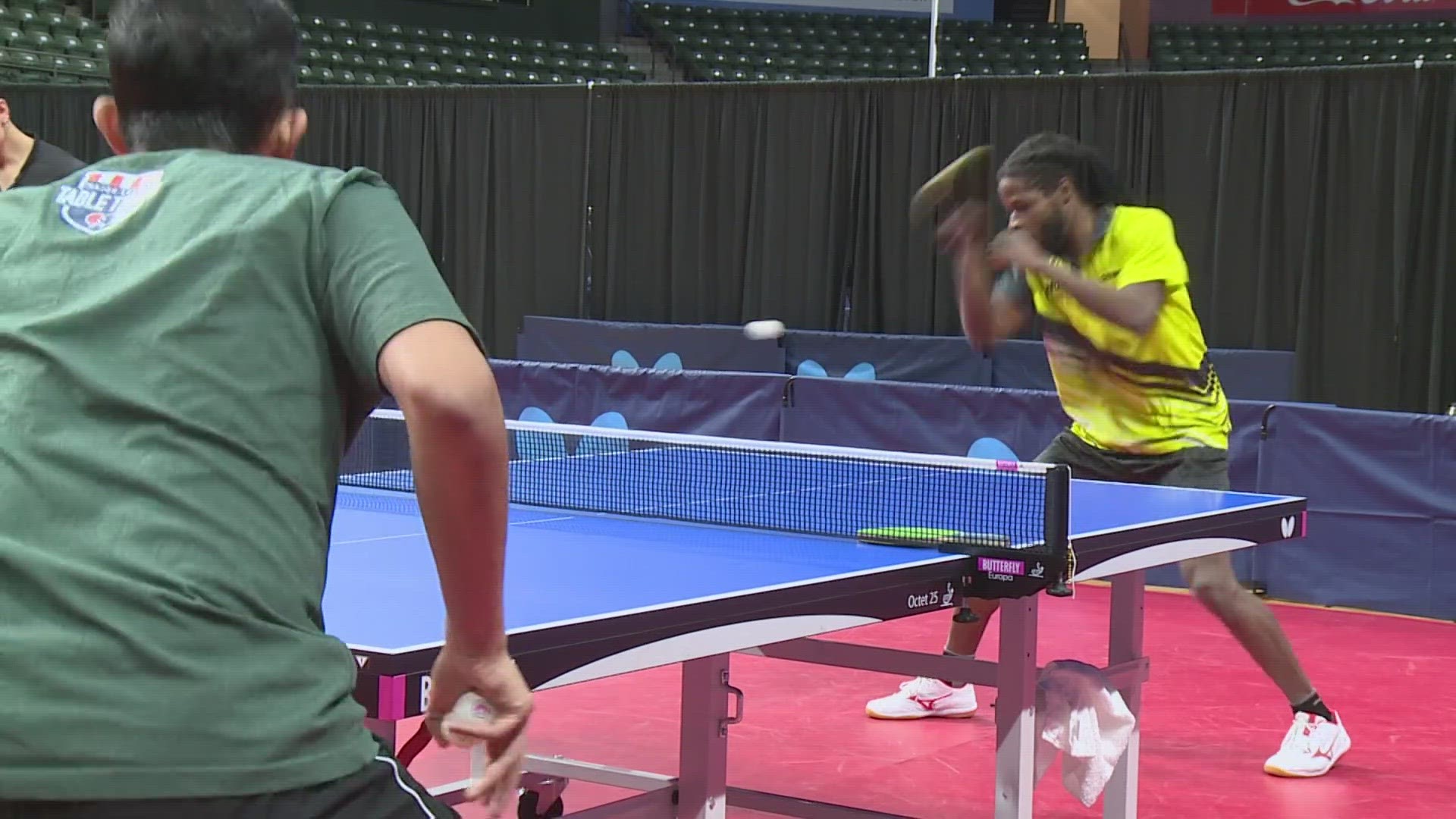EVERETT, Wash. — If you were hoping for ping pong, you'd be disappointed.
That sport is for casual, recreational players. Table tennis is for the pros.
At a three-day event in Everett at Angel of the Winds Arena, a lot more than bragging rights are on the table.
Livelihoods are on the line.
More than $200,000 in prize money is up for grabs in the first year of Major League Table Tennis.
On Friday, the home team, Seattle Spinners, was not trying to spin the story.
"This weekend is actually my first time in Seattle ever," 21-year-old Nikhil Kumar said.
Kumar is a table tennis titan, known for his left-handed lasers.
He was making his local debut for the local team after a career of international success.
"My greatest accomplishment so far is that I qualified for the Olympics and was able to even win a couple matches there. I represented the U.S. in 2020," he said.
Kumar is using a weekend's worth of matches as a tune-up for the Olympic Trials next month.
It's a different story for the women.
Lily Zhang, 27, has already punched her ticket to Paris.
"(I'm) a three-time Olympian, hopefully four times now," she said.
Zhang debuted at the Olympic Games when she was 16. She hasn't forgotten the moment 11 years later.
"It was literally like Kobe Bryant to my left and Serena Williams on my right," she said, recalling the Opening Ceremony.
It's safe to call Lily a legend as well.
There was another one in the building during practice time Friday morning.
"I competed in 1988 in Seoul, and that was the first Olympics for table tennis," Sean O'Neill said, a former player turned broadcaster.
O'Neill will be on the call for NBC this summer, but all thoughts of the Olympics are tabled for now.
"Nothing is better right now than Major League Table Tennis in the U.S.," he said.
This weekend is serving notice that the professionals are in town.
"I promise you, when you watch the action, it'll be mesmerizing. You'll be like, 'How are they doing that? Where is the string on the ball?" O'Neill said.
"We like to say it's chess and boxing combined because you're trying to figure out your opponents' moves before but at a fraction of a second," Zhang said.

